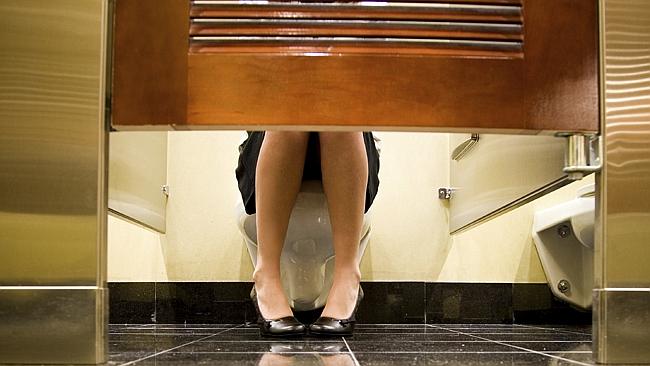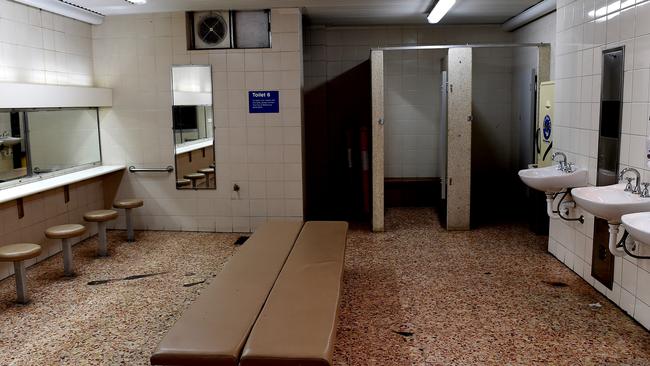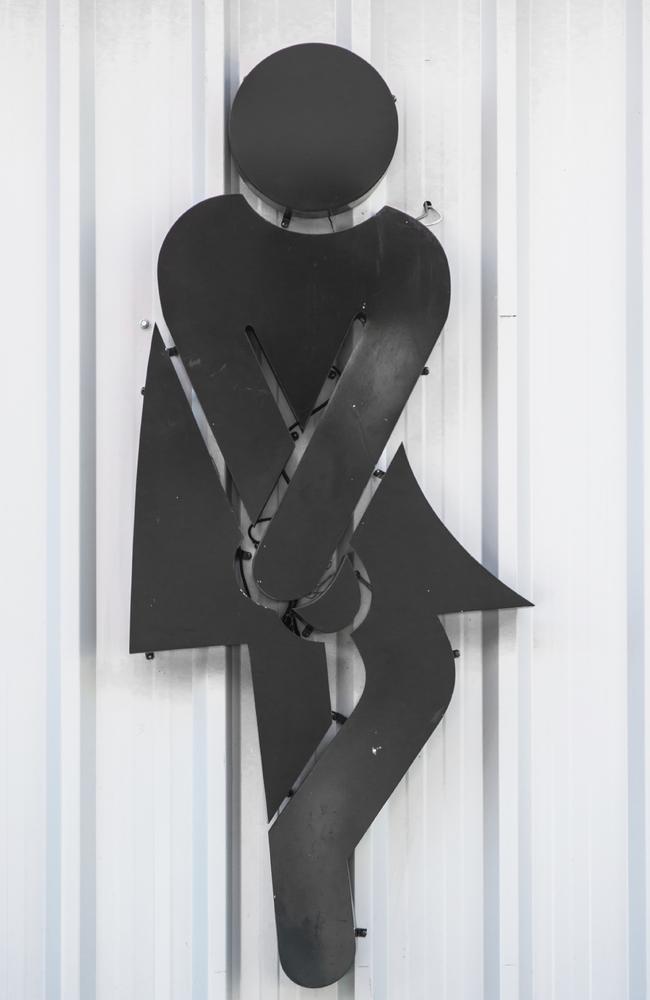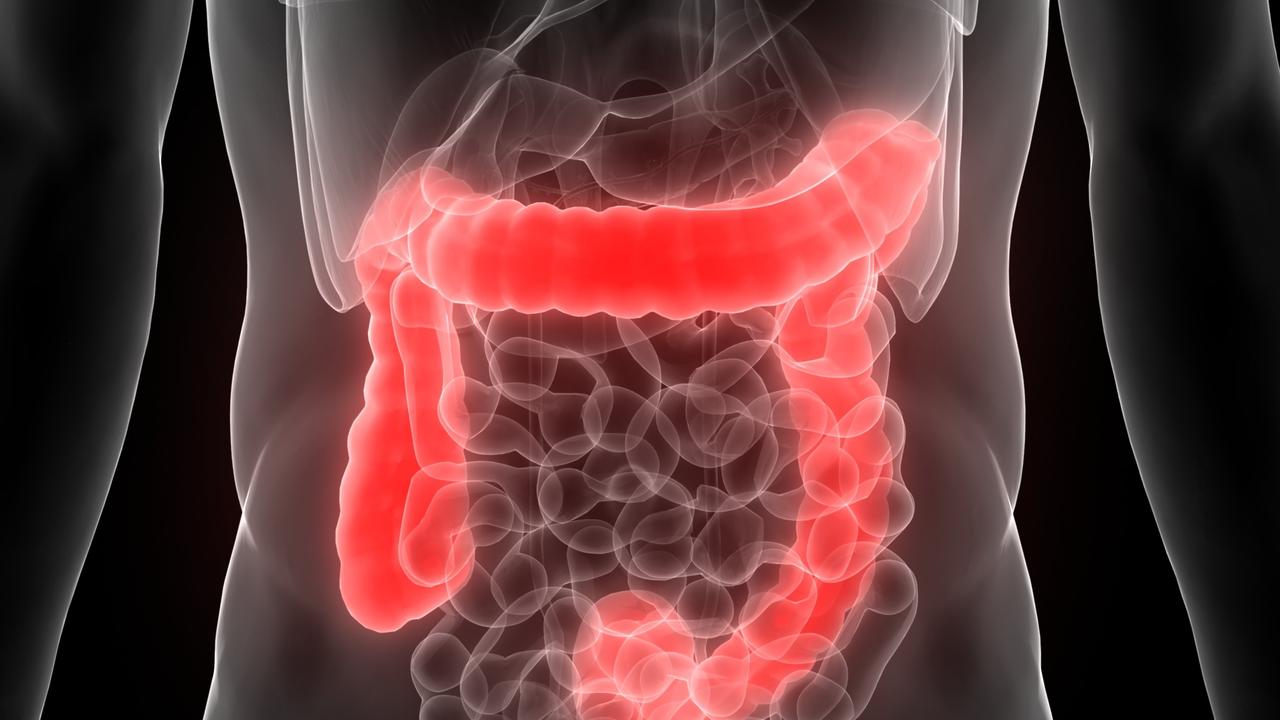Toilet anxiety: When you panic about your number twos
TOO panicked to poo in a public toilet? A new study has revealed if you suffer from toilet phobia, you are not alone.

A CONDITION which makes people too petrified to poo in public means some Australians avoid going out because they fear not only using public toilets, but are also scared they won’t make it in time.
Snigger behind your hand if you must, but the reality is that at its most extreme, toilet anxiety, shy bladder and shy bowel syndromes can be so crippling that sufferers stay home rather than risk peeing or pooing in public toilets.
And the fear people might hear you doing a number two is worse than that of doing a number one (pee) researchers from Swineburne University found when they developed a scale aimed at assessing the anxiety people commonly experience when needing to use a public rest room.
Dr Simon Knowles is one of the study’s authors, and a clinical psychologist who specialises in gastrointestinal conditions and working with people with severe anxiety about using public toilets. His said both Paruresis (anxiety associated with urinating in public: shy bladder) and Parcopresis (anxiety related to having a bowel motion: shy bowel) can be so extreme people can struggle to socialise, study or even hold down a job because they only feel comfortable using their own toilet.
The study involving 334 adults reveals that shy bladder and shy bowel symptoms were both associated with increased stress, anxiety and depression.
“Those who experience toilet anxiety frequently worry about using a public toilet due to fears that others may hear or see them,” Dr Knowles said.
“Although the prevalence of toilet anxiety is not clear, it is suggested to be around six per cent to 35 per cent of the population may be affected to some degree.”
Dr Knowles developed his scale of toilet anxiety measure in an effort to better understand the causes of the condition, and tested it on the 300-plus people involved in the study.
Basically, the ‘how scared are you to poo scale’ will help experts to better judge whether general self consciousness has spiralled into full blown social anxiety. If it’s the latter, Dr Knowles says, you’re far from alone, and it’s treatable.
“We’ve all experienced being in the public toilet and hearing someone else come in, then hearing them walk straight out again,” he said.

“You wonder if that’s because they saw that someone was in the toilet and they didn’t want to use it while others were around them. For people with toilet anxiety the thought of using public rest rooms in terms of the sounds and smells that might occur is what they dread.
“It’s more than simply being self-conscious. It’s quite natural to be self-conscious. But what we are talking about here is when it has a significant impact on someone’s life.”
“They might get invited for dinner but are panicked by the thought of: ‘if I use their toilet they are going to hear me’.”
Dr Knowles treats some patients whose lives end up quite restricted as they avoid social engagement to avoid the potential of having to use a public toilet.
“For some people it’s more about the fear that they won’t be able to make it to a toilet in time because of a gastrointestinal condition, and that’s an area we are also keen to do more social research on,” he said.
Sufferers of toilet anxiety can descend into a full-blown panic attack at the condition’s most extreme.

“At that time the classic feeling is a panic attack: a rapid, racing heart rate, increased blood pressure, dizziness, racing thoughts and a feeling of being overwhelmed and not in control — which then facilitates a need to go to the toilet,” he aid.
“This is an extreme condition, and in psychology comes under the category of special anxiety disorders. They want to avoid certain situations at all costs.
“Most of us, while we like to have a bowel movement in privacy, if we need to use a public toilet, it’s no big deal.
“But for a small percentage of the population that scenario is overwhelming and has a significant impact on the quality of life like many other mental health conditions.”
Sufferers who do make it out of the house take many measures to offset the anxiety, including going only to locations where they know where the toilets are and how many, and going outside ‘peak’ times.
Others may resort to anti-diarrhoea medications “to give them a sense of confidence”.
But that has its own dangers, with physical impacts on gastrointestinal systems.
The results of the research were recently printed in the Journal of Cognitive Behaviour and more information and the survey are available at toiletanxiety.org




